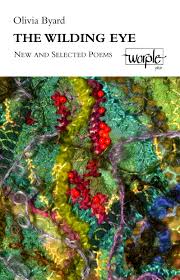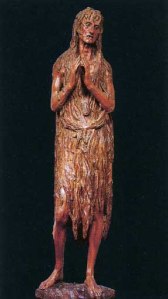I’ve had a major dose of the flu recently and have been too busy catching up with teaching and marking missed to devote much thought to blogging. So please forgive this brief and slightly self-absorbed effort. Talking about my own poetry is not really what I want to do too much of here. Nevertheless . . .
I gave a reading a couple of weeks ago in which the main focus was the idea of identity. It has been on my mind since and this week we have been looking at Sylvia Plath’s fictional self, Esther Greenwood. She is seen struggling in 1953 to appreciate she ought to be “the envy of thousands of other college girls . . . all over America”. She has won the opportunity of working for the summer as what we might now call an intern at a leading New York women’s magazine. In one of those flashes of figurative language that marks Plath the poet-novelist, Esther confesses she ought be “steering New York like her own private car”. Instead: “I wasn’t steering anything, not even myself”.
Esther’s ensuing breakdown – closely following Plath’s own – can be interpreted as her searching for a clearer sense of her own identity as she ponders and then rejects role models offered by Doreen (the wild girl), Betsy (the traditional), Joan (the lesbian), Cee Jay (the older career woman) and her own mother (hard-working single parent with no prospects). If we can manage to ignore the subsequently brilliant then tragic ten years of Plath’s own life after 1953, The Bell Jar, her only-completed novel, ends on an upward trajectory. Esther is re-born in the end: “patched, retreaded and approved for the road”. She finds a more sure sense of herself. As she waits for her release from the psychiatric ward she listens to her own heart beating: “I am, I am, I am”.
To borrow from Wikipedia, identity is defined as the distinctive characteristic belonging to any given individual or shared by all members of a particular social category or group. Identity, then, is a label. However, the formation of one’s identity occurs through one’s identifications with significant others (primarily with parents and other individuals during one’s life and also with identifiable groups). These others may be benign – such that one aspires to their characteristics, values and beliefs (a process of idealistic-identification), or malign – when one wishes to dissociate from their characteristics (a defensive contra-identification).

Plath’s Esther Greenwood seems initially to have lost or never really determined or had no faith in her identity though I suspect this is a common enough feeling among adolescents. In retrospect this seems to be the point of one of the poems I read (first published in Hurt (2010)). It features a bunch of adolescents walking in Cumbria, one of their number too pre-occupied with fretting about a fading relationship. ‘Riders on the Storm’, the song by The Doors which they choose to put on the pub juke box, operates as a sort of mock-heroic image which the main character signally fails to live up to. Heroes know who they are; he does not. The point seems to be that the pain caused by the dissolving of the fledgling relationship is an early opportunity, perhaps, to define himself a little more clearly.
Riders on the storm
With no schedule to drive us,
we wait for rain to stop beside Ullswater’s
southern lip, for the landlord of The White Lion
to determine when it’s time to open.
Ducking through the door, Helen, Clive, Steve,
each a few weeks shy of university,
and I’m there too, heart awash
with absence, her love letters at looked-for drops,
the girl I feel leaving gradually
as the tedious route past Thirlmere to Catstye.
But it’s OK for a while – passing midday snug
in a deserted pub
while outside the downpour gurgles, begins to blur
and double with the torrential roar
of the juke-box: The Doors the only thing
we key in, its electric piano’s limpid fingering
like the give and tender recoil of water,
the lugubrious voice . . . Fifteen years later,
at his paint-spattered Pere-Lachaise stone,
I remember that wretched lunchtime
under the wettest rain in England,
when I was too ill-formed to understand.
I barely displaced a drop of local weather,
could only conceive of myself as either
a body slumped beside a dry stone wall
or drenched and raging on the dramatic fell
on the path to Ambleside bus station,
its oily tarmac smoking under black rain,
her blonde voice fluent on the phone:
‘You hear me?’ I could not even hear my own.











